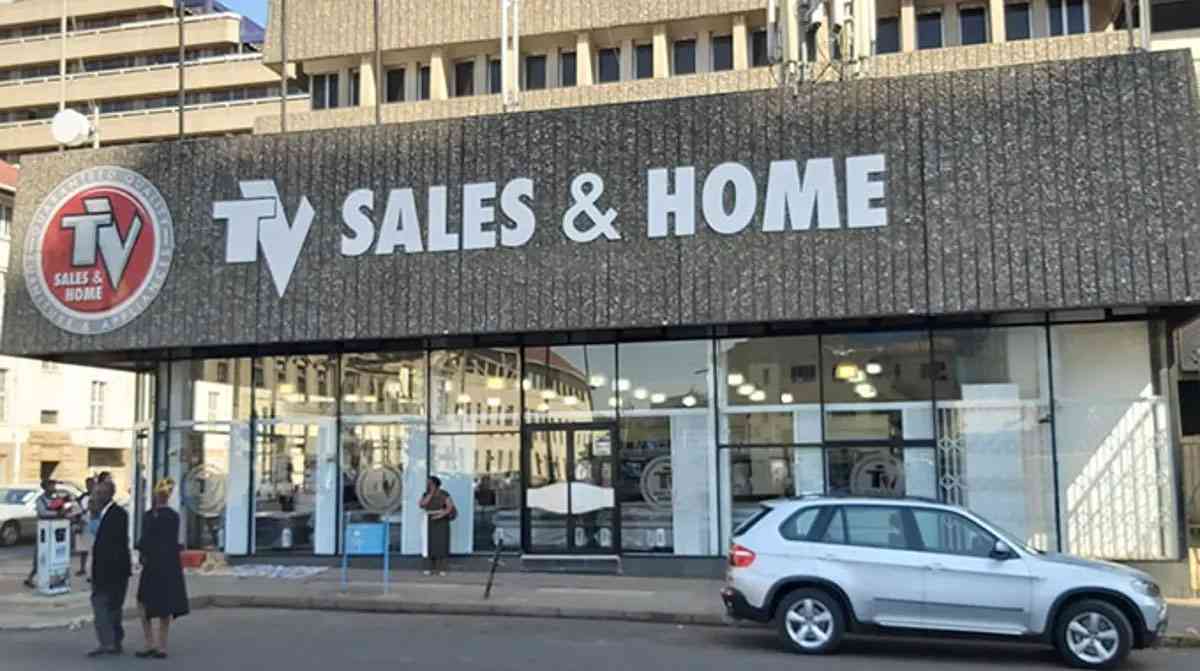
THE Victoria Falls Stock Exchange-listed diversified manufacturing, retail and distribution giant, Axia Corporation Limited, recently released its half-year results to December 31, together with a briefing to analysts last week.
The presentation’s highlights were that the company increased its stake in Transerv from 50,51% to 87,75% and is almost done with the bed manufacturing plant under Restapedic, which can make 10 000 beds in a month.
Broadly speaking, Axia is into three businesses housed under TV Sales & Home, Transerv and Distribution Group Africa. Under TV Sales, the company is into furniture manufacturing and retailing. Axia owns two-thirds of that division.
Brands like Sharp, Samsung, Philips, Capri and Hisense among others, are sold via TV Sales.
TV Sales was the largest contributor towards topline with a 33% weight in HY24, buoyed by an 11% jump in sales volumes. Management was very bullish about the prospects of venturing into selling solar products under TV Sales and is also excited about pushing mobile phones via their outlets. TV Sales is now a group, and it houses subsidiaries like Restapedic and Legend Lounge.
Restapedic is a bed manufacturer, and its plant in Sunway City with the capacity to make 10 000 beds a month is near completion.
Currently, the plant is producing close to 5 000 beds and the company is selling everything produced. Responding to analysts at the briefing, management reported that the critical components of bed manufacturing are the timber, which is locally available, the form, which is sometimes locally available and sourced offshore, and the fabric, which is sourced offshore.
Legend Lounge is the other furniture manufacturing division under TV Sales, which produces high-end living room sofas, couches, etc. During the period to December 2023, the volumes sold under Legend Lounge were up 34% leading to a 15% revenue jump.
- CTC approves six mergers
- CTC approves six mergers
- Pension funds generate US$29 million
- Caledonia to restart key Bilboes operation
Keep Reading
TV Sales is also exploring export markets for its products and will leverage the distribution business. It now has 56 branches nationwide, including the outdoor world garden function store that was opened in December 2023 at Sam Levy Village.
When asked about the key considerations before opening a new outlet, management responded that traffic is a major determinant. A new store is usually given three to four months to achieve its desired turnover.
Under Transerv, the company is in the automotive retail business with outlets nationwide. They sell some of the leading brands in automotive spare parts and do fitment services.
Axia got into this when Innscor bought a stake in Transerv in 2016 and subsequently unbundled Axia that year. Axia is now controlling Transerv after increasing its stake in July 2023.
During the period under review, Transerv opened a total of eight new shops, where six of them were retail shops and the other two were fitment centres.
Management indicated that Transerv outlets are less capital-intensive to open, and payback is expected within the first eight months of operations. Transerv’s contribution to the top-line improved by two percentage points from HY23 to HY24 as the division continues to see growth.
The company has also seen an opportunity to sell solar products under Transerv and is motivated by the numbers so far.
Axia is also involved in the distribution business where it has exclusive relations with some of the biggest household brands like Colgate, Tiger Brands, Johnson & Johnson and Kellogg’s, to mention a few.
The company has fleets and warehouses to ensure smooth distribution of the products across the country, and some of the biggest retailers like OK Stores and TM Pick n Pay are amongst their clients.
This business is housed under Distribution Group Africa (DGA), and it operates in Zambia and Malawi in addition to the Zimbabwean one. DGA Zimbabwe contributed 27% towards the group’s revenue, representing a nine percentage point drop from the comparative period.
The informalisation of the economy has significantly affected these operations. However, management confirmed that it has started to notice some improvement since the measures that were put in place by the authorities to formalise the market.
Ultimately, the sales volume took a 39% knock versus the comparative period, and this was pushed by some of the formal retailers, who failed to adhere to their payment terms.
DGA Zimbabwe had some start-and-stop relationships with some of the retailers until they then moulded a more sustainable model in the volatile operating environment.
The currency mix in this space mimics that of the retail chains although the price quote will be in greenback.
Performance in Malawi was impressive as the division saw a 90% nominal revenue growth and 42% when converted to the dollar. This was buoyed by a staggering 26% growth in the volumes against the comparable period.
The Zambian operations faced headwinds from the currency depreciation. Turnover in nominal terms was up 18%, but in real terms, the division reported a 7% decline.
However, management is confident that they will continue to employ the same management principles in these markets as they have done in Zimbabwe, considering that the country also suffered from currency devaluation.
Overall comment
The distribution business has been under massive pressure and their contribution has shrunk in the period under review. Collectively, this remains the biggest section of the company and if management can coin strategies to stay afloat in this turmoil economic environment, when things normalise, I see the division bouncing back.
On the other hand, TV Sales and Transerv have seen growth and managed to keep the company afloat. Considering the electricity situation in Zimbabwe, I opine that a trusted retailer like TV Sales or Transerv can snatch a significant market share of solar products.
The Sunway City Restapedic plants bring excitement as the growth is likely to increase significantly if we consider that the company is currently able to sell all its manufactured products.
On the financial side, despite a 4% decline in top-line, the company managed to keep the costs under control leading to a 7% jump in the bottom line.
The company’s cash flow generating capacity has increased, as it registered an 87% increase in cash flow from operations. The shareholders’ equity barely moved during the period under review, albeit the 15% change in total assets.
From a shareholder value preservation perspective, the move by the company to a United States-denominated exchange made a difference.
Payment to shareholders remained stable with an interim dividend of US$0,0018, which I think is a positive step despite the challenges faced by the distribution business.
Using the current share price, the annualised interim dividend yield would be 4,45%, which is quite competitive in the market.
- Hozheri is an investment analyst with an interest in sharing opinions on capital markets performance, the economy and international trade, among other areas. He holds a B. Com in Finance and is progressing well with the CFA programme. — 0784 707 653 and Rufaro Hozheri is his username for all social media platforms.






